How to Puppy Proof Your Home
Dogs
Puppies are adorable and entertaining; they are awkward, playful and full of energy until they are suddenly in a deep sleep. But they can also be as troublesome as a toddler. They seem to get into everything and have a special power that enables them to find dangerous and potentially harmful objects. If you are getting a new puppy, make sure his new home is ready and safe before you bring him home.
Household Hazards
Furniture. Certain types of furniture can be dangerous to puppies. Reclining chairs can trap a curious pup that crawls inside. Rocking chairs can roll on a puppy's tail or foot, so make sure your pup isn't sitting near the rocker when you decide to take a break.
Slippery floors. Puppies in the early stages of learning to walk are not steady on their feet and are often clumsy. Slick floors, such as linoleum or hard wood, can result in slips and falls. Cover the floors with rugs to help your puppy with his footing. Don't encourage running on slippery surfaces.
Stairs. These can pose another risk to your puppy. Not only can they slip and fall down the stairs but the stairs also lead to other areas of the house out of your watchful eye. Place baby gates so that the puppy does not have access to stairs.
Electrical cords. Puppies love to chew and electrical cords need to be off limits. Electrocution can occur easily and cause injury or even death. Tie up loose electrical cords or conceal them in hard plastic or rubber runners purchased at the hardware store.
Small objects. Not only do puppies love to chew on cords, but small objects are also a danger. Swallowed coins, pins, needles, rubber bands, paper clips, staples, nails, screws, yarn, thread, dental floss, earrings and other small jewelry, bells and small balls, left lying around can lodge in your puppy's digestive tract. Keep them safely out of your pup's reach.
Children's toys and clothing. Puppies love to chew and toys and clothing are typical favorites. Your child's bedroom and playroom should be off limits unless the puppy can be supervised. Keep clothing and shoes safely stored in cabinets, drawers or hampers.
Bathrooms. This area of the house poses its own risks. Bathroom trashcans, especially in homes with women, are very tempting to puppies. Though what they choose to ingest may not seem "choice," remember that puppies are not too picky. Immediately discard any bulky bathroom items, such as sanitary supplies, to the outdoor trashcan. Dirty clothes should not be left lying around and towels need to be kept out of reach. Medications should be safely stored away and toilet lids down if toilet bowl cleaners are used. (Actually, keep them down anyways - do you really want your puppy drinking from the toilet?)
Windows. Keep your dog from accidentally falling or escaping through an open window by fastening window screens securely. Outdoor Hazards
Big Bad World. Don't leave your puppy outside unattended. Escaping from the yard, poisonous plants and the anxiety of the being in the big backyard alone can be dangerous. Make sure you remove or fence off all potentially dangerous plants. Check your fence for holes and keep him company until he learns his boundaries.
Pool or Pond. Your curious and sometimes awkward pup can fall into the pool and not be able to get out. Keep the pool or pond fenced off and don't allow unsupervised access. Consider getting a pool alarm that sounds if something falls into the water.
Garage or Storage Sheds. Too many dangerous items can be found in garages and storage areas, including fishhooks, fishing lines, chemicals, herbicides and various garden supplies. Automotive items, such as antifreeze (which dogs are attracted to) can also pose a threat. Keep these areas closed and locked to prevent your puppy from getting into serious trouble.

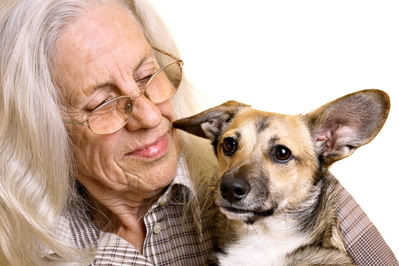 Dealing with Canine Arthritis
If you have an older dog, look for
Dealing with Canine Arthritis
If you have an older dog, look for
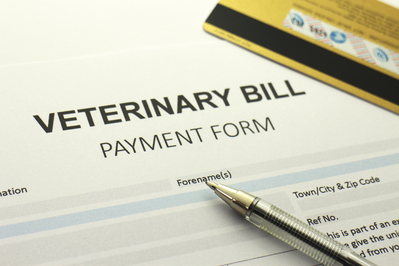 Questions to Ask When Considering Pet Insurance for Your Dog
Cost of Care is Escalating
As vete
Questions to Ask When Considering Pet Insurance for Your Dog
Cost of Care is Escalating
As vete
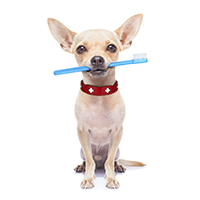 Ear Infections in Dogs: Causes, Diagnosis, Treatment, & Prevention
If your dog suddenly starts whining
Ear Infections in Dogs: Causes, Diagnosis, Treatment, & Prevention
If your dog suddenly starts whining
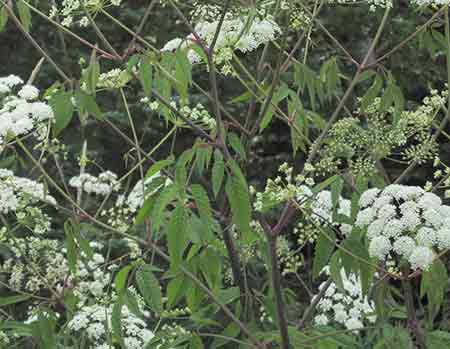 Warning! Water Hemlock Kills Dog in an Hour
A 3-year-old Border Collie mix rece
Warning! Water Hemlock Kills Dog in an Hour
A 3-year-old Border Collie mix rece
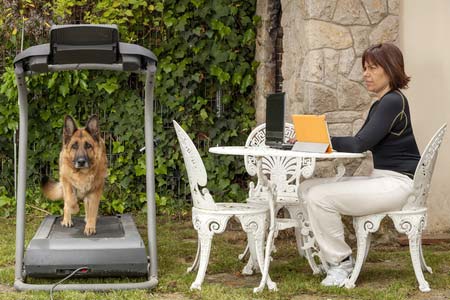 Shining a Light on Laser Therapy
Some veterinarians view low-energy
Shining a Light on Laser Therapy
Some veterinarians view low-energy